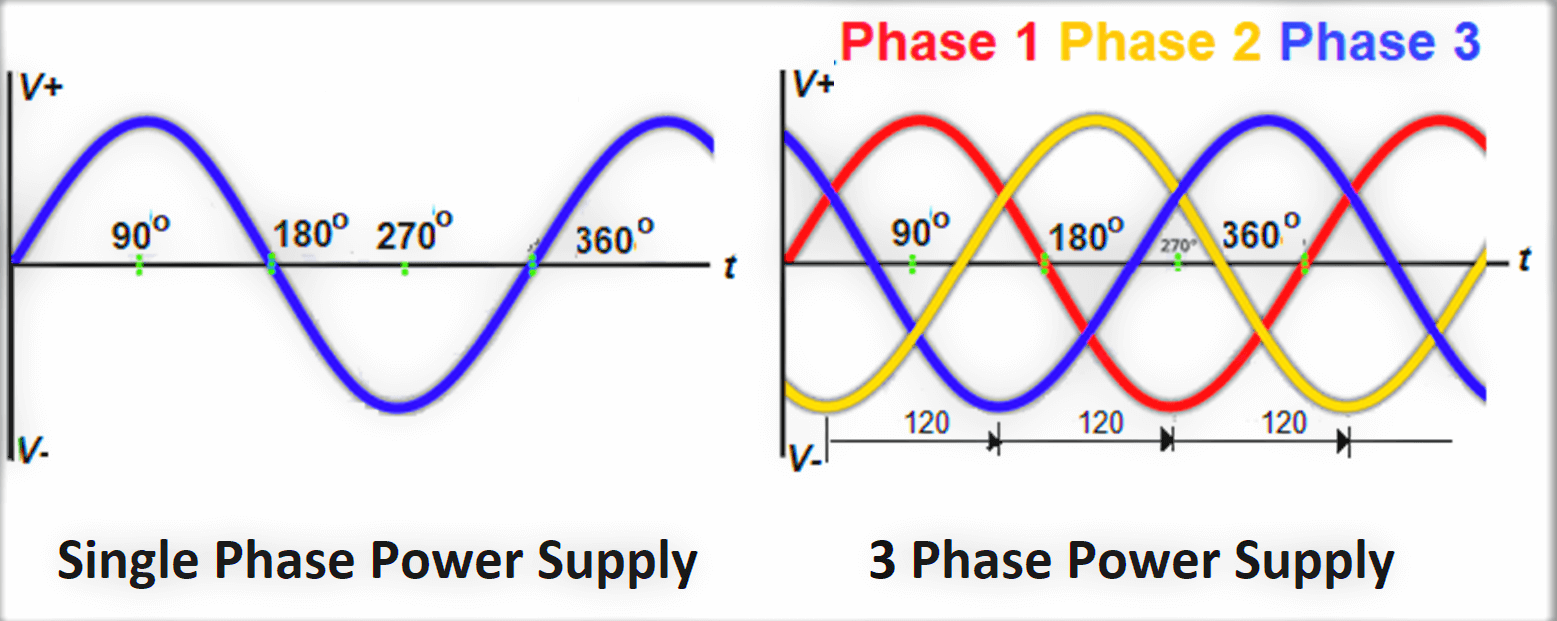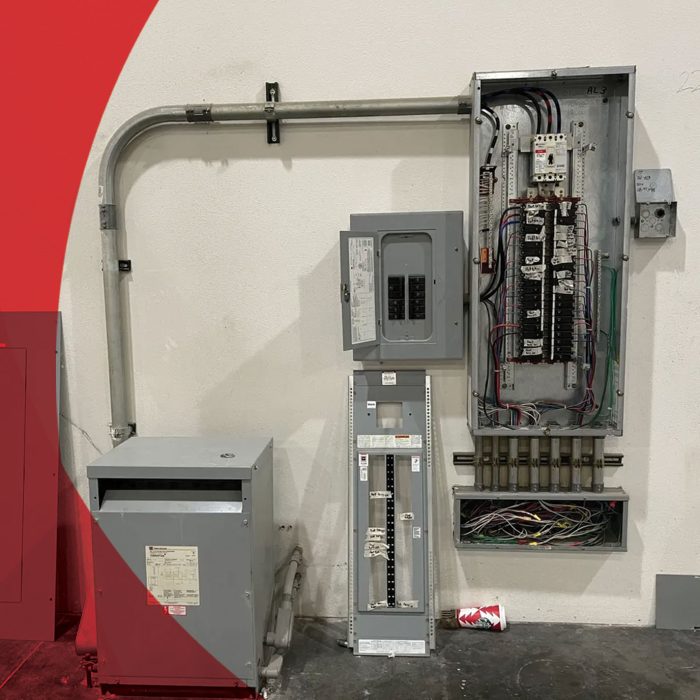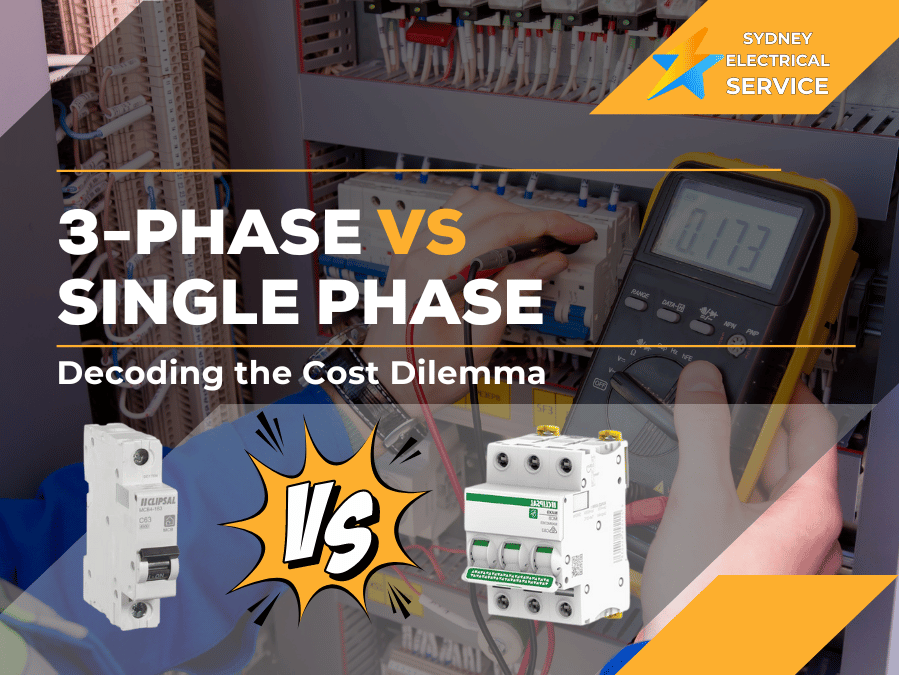Brilliant Tips About What Is Cheaper, Single-phase Or 3-phase

Navigating the Electrical Maze
1. Understanding the Basics
So, you're trying to figure out whether single-phase or three-phase power is the more budget-friendly option, huh? It's a question that pops up for homeowners and business owners alike. To untangle this electrical conundrum, let's ditch the jargon for a bit and just look at what makes each system tick. Think of single-phase as your trusty old bicycle simple, reliable, and good for everyday use. Three-phase, on the other hand, is like a powerful sports car it can handle heavy loads with ease and efficiency, but it might cost you a bit more upfront.
The critical difference boils down to power delivery. Single-phase uses a single alternating current (AC) voltage to supply power, like a single lane highway. Great for running lights, TVs, and smaller appliances. Three-phase, however, utilizes three AC voltages that are out of sync with each other. This creates a more consistent and efficient power flow, much like a multi-lane highway, capable of handling significantly more traffic, or in this case, electrical load. Think industrial machinery, large HVAC systems, and heavy-duty equipment.
Now, let's be upfront, no one-size-fits-all answer exists. What's 'cheaper' depends heavily on your specific circumstances. Is your main concern initial installation costs, or are you more interested in long-term operational savings? Are you powering a small apartment, or a manufacturing plant? These are the types of questions we need to consider to point you in the right direction. And believe me, this journey will save you from future electrical headaches.
Don't worry; we'll delve into the costs piece by piece. We'll look at everything from the initial setup to the long-term energy bills, giving you a clear picture of which system truly is kinder to your wallet in the long run. Buckle up, because we're about to dissect this electrical debate like a seasoned electrician!

Single Three Phase Transformer VS Transformers YouTube
The Initial Investment
2. Laying the Groundwork
Alright, let's talk cash, the part everyone loves (or loves to hate!). When comparing single-phase and three-phase, the upfront costs are usually where the biggest differences glare at you. Installing a single-phase system is generally less expensive. The wiring, breakers, and related components are simpler and more readily available, which translates to lower labor costs too. It's like choosing a basic sedan over a luxury SUV — the base price is simply lower.
On the other hand, getting a three-phase system up and running often involves a bigger financial leap. The wiring is more complex, requiring thicker gauge wires and more specialized equipment. You might even need to upgrade your electrical panel or transformer, which can significantly inflate the initial bill. Its like renovating a house sometimes, you uncover hidden expenses you didn't anticipate.
Don't just hyper focus on the immediate price tag. Consider whether you'll need additional power down the road. If you anticipate growing your business or adding more high-power equipment, investing in three-phase infrastructure now could save you a ton of money later. Think of it as planting a tree it might seem expensive at first, but it provides shade and benefits for years to come.
Plus, let's not forget about permits and inspections. Depending on your location, installing three-phase power might involve more stringent regulations and approvals, leading to additional time and expense. So, before you make any decisions, get a clear understanding of the local codes and requirements. A little research upfront can prevent a lot of headaches (and costs) down the road. Its always better to be safe than sorry, especially when dealing with electricity!

Which Is Best & Cheaper Single Phase, Double Phase Three Phase? How
Energy Efficiency
3. The Power Play
Now that we've covered the upfront costs, let's peek into the long-term implications of single-phase vs. three-phase. Here's where things get interesting. Three-phase systems are generally more energy-efficient than single-phase, especially when powering heavy machinery or high-demand equipment. This efficiency translates into lower electricity bills over time.
Think of it like this: a three-phase motor typically runs smoother and cooler than a single-phase motor of the same horsepower. This means less energy is wasted as heat, and more power is used to actually do the work. It's like comparing a hybrid car to a gas-guzzler the hybrid might cost more initially, but it saves you money at the pump in the long run.
However, this isn't a blanket statement. If you're primarily running lights, small appliances, and other low-power devices, the energy efficiency difference between single-phase and three-phase might be negligible. In such cases, the higher installation cost of three-phase might not be justified. After all, why invest in a high-performance sports car if you're just using it to drive to the grocery store?
Also, consider the load balance. Three-phase systems work best when the load is evenly distributed across all three phases. If you have a highly unbalanced load, you might not realize the full energy efficiency benefits. It's like trying to balance a seesaw with unequal weights on each side — it requires more effort and isn't as efficient.

Difference Between Singlephase And Threephase Power
Maintenance and Reliability
4. Ensuring Smooth Operations
Beyond the initial costs and energy efficiency, maintenance and reliability play a significant role in determining the overall expense of single-phase vs. three-phase. Single-phase systems are generally simpler, meaning there are fewer components that can break down. This can translate into lower maintenance costs and less downtime.
Think of it as owning a basic wristwatch versus a complex chronograph. The basic watch is less likely to need repairs, while the chronograph has more intricate mechanisms that could potentially fail. Of course, it depends on the quality and brand of products, but as a general rule of thumb: simpler = less maintenance.
Three-phase systems, while more robust for heavy-duty applications, can be more complex to diagnose and repair. Finding a qualified technician familiar with three-phase systems might also be more challenging and expensive, depending on your location. This could lead to longer downtime and higher repair bills.
However, let's not paint too bleak a picture of three-phase. Well-maintained three-phase systems are incredibly reliable and can handle demanding loads for extended periods without issues. Regular inspections and preventative maintenance can go a long way in preventing costly breakdowns and ensuring smooth operation. Its like taking your car for regular tune-ups — it helps prevent bigger problems down the road.

SinglePhase Vs. ThreePhase Systems Explained
So, Which is Cheaper
5. Making the Right Choice
Alright, after all this talk, let's cut to the chase: Is single-phase or three-phase cheaper? Well, as you've probably guessed by now, the answer is "it depends!" But here's the distilled version:
Choose Single-Phase If: You're primarily powering a residential home, a small office, or any environment with relatively low power demands. The upfront costs are lower, maintenance is simpler, and the energy efficiency difference might not be significant enough to justify the higher cost of three-phase. Think of it as choosing a sensible sedan for your daily commute.
Choose Three-Phase If: You're running a business with heavy machinery, large HVAC systems, or other high-power equipment. The long-term energy savings and increased reliability of three-phase will likely outweigh the higher initial investment. Think of it as investing in a powerful pickup truck to haul heavy loads.Ultimately, the best way to determine which system is truly cheaper for you is to get a professional electrical assessment. An experienced electrician can evaluate your specific power needs, provide accurate cost estimates, and help you make an informed decision. A little bit of professional advice is worth the investment, in saving you from the wrong decision.

3 Phase VS Single Everything You Should Know
FAQ
6. Quick Q&A
Q: Can I convert single-phase to three-phase?
A: Yes, it's possible using a rotary phase converter or a static phase converter. However, these converters introduce their own inefficiencies and costs. It's often more cost-effective to install a true three-phase system if your power needs are significant.
Q: Will upgrading to three-phase increase the value of my property?
A: It depends. For residential properties, it might not make a huge difference. But for commercial or industrial properties, having three-phase power readily available can definitely increase its market value and appeal to a wider range of potential buyers or tenants.
Q: Is three-phase power more dangerous than single-phase?
A: Not necessarily. Both single-phase and three-phase power can be dangerous if handled improperly. It's crucial to always hire a qualified electrician for any electrical work and to follow all safety precautions. Electricity doesn't discriminate!